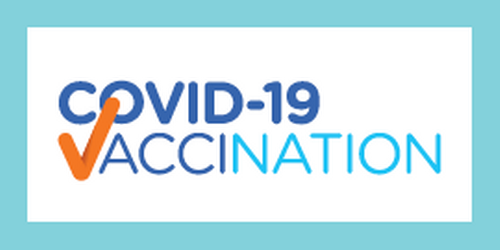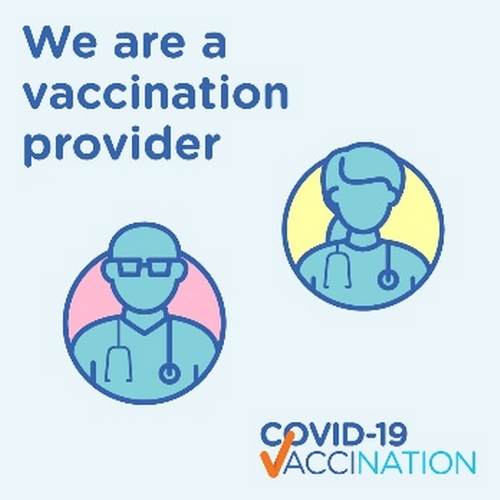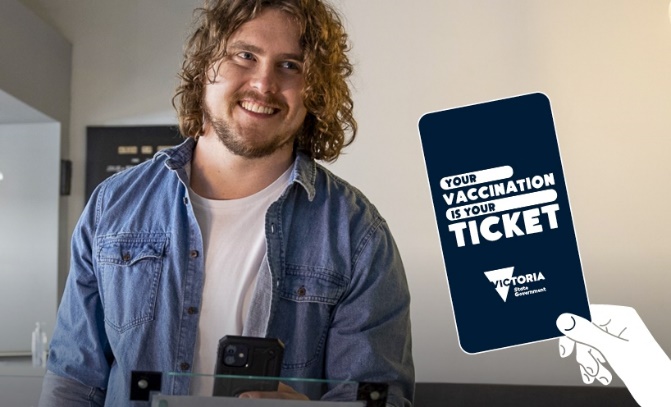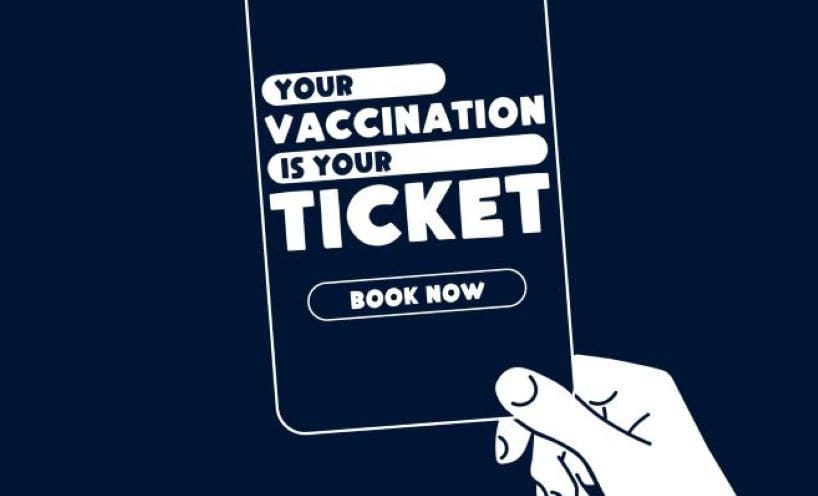Covid-19 Vaccines
Vaccination for COVID-19
Every day, immunisation saves lives by reducing the spread of disease.
Immunisation protects people who have been immunised. It also protects those in the community who may be unable to receive immunisation themselves.
COVID-19
What is COVID-19? COVID-19 stands for “coronavirus disease 2019. It is caused by a virus called SARS-CoV-2. The virus first appeared in late 2019 and quickly spread around the world.
What are the symptoms of COVID-19?
Dial Triple Zero (000) if you are having trouble breathing or have chest pain.
If you have any of the symptoms listed below, however mild, you should seek advice and get tested immediately.
To get further advice, call the 24-hour coronavirus hotline 1800 675 398 or see your general practitioner.
The symptoms to watch out for are:
- • loss or change in sense of smell or taste
- • fever
- • chills or sweats
- • cough
- • sore throat
- • shortness of breath
- • runny nose
Some people may also experience headache, muscle soreness, stuffy nose, nausea, vomiting and diarrhoea.
Hygiene and physical distancing
Information about good hygiene, physical distancing and advice about how you can stay well
Stay home if you have symptoms
It is more important than ever to stay home and get tested if you have any symptoms of coronavirus (COVID-19), however mild.
- • Do not go to work or school.
- • Do not visit anyone, especially older people and those with pre-existing medical conditions.
Wash your hands
Good hygiene is critical for slowing the spread of coronavirus (COVID-19). Everyone should be taking the following hygiene actions:
Wash your hands
- • Wash your hands regularly with for at least 20 seconds, using soap and water or use a hand sanitiser that contains at least 60 percent alcohol.
- • Wash your hands when you get home, arrive at other peoples homes, at venues or at work.
- • Wash your hands after blowing your nose, coughing, sneezing, or using the toilet.
Don’t cough or sneeze into your hands
- • Cover your nose or mouth with a tissue, then throw it away and wash your hands.
- • If you don’t have a tissue, cough or sneeze into your elbow or upper sleeve.
- • Avoid touching your eyes, nose, and mouth with unwashed hands.
- • If you are wearing a face mask, leave it on.
- • Do not share drink bottles, glasses, crockery or cutlery other than with people you live with.
Further information
- • For information on staying safe while caring for an unwell family member or loved one, see How to care for those in isolation or quarantine
- • For information for people who are elderly, have a chronic illness, who are immunocompromised, see About coronavirus.
Keep your distance – stay 1.5 metres away from people you don’t live with
- • Greet people with a smile or wave – don’t shake hands, hug or kiss as a greeting.
- • Stay 1.5 metres away from people where you can.
- • Avoid crowds, especially indoors.
- • When waiting in line or walking through busy areas, be patient, give others space so they can give you yours.
Wear a face mask
Wearing a face mask protects you and your community by providing an additional physical barrier to coronavirus (COVID-19).
Everyone must wear a face mask when required, unless a lawful exception applies.
For more information visit face masks.
Stay healthy
• Keep eating a balanced diet.
• Get regular exercise and sleep.
• Reduce your alcohol intake.
• If you’re a smoker, think about and try quitting. Call the Quitline on 13 78 48.
• Get vaccinated for flu (influenza). This will help reduce the demand on the healthcare system as it deals with coronavirus (COVID-19). Vaccines are now available from your GP and pharmacy.
Stay connected and support each other
It is important to keep connected as a community, even while physically distancing. You can support your friends and family by continuing these key actions:
- • If you or a loved one is feeling anxious or concerned at this time, help and support is available.
- • Where possible, keep connected to your family, friends and work colleagues through video conferencing, phone, email and social media.
- • Look out for your neighbours and family members.
- • Stay informed. Seek information from reputable sources, for example the coronavirus (COVID-19) section on this site.
Cleaning
Cleaning and disinfecting high-touch surfaces regularly (for example phones, keyboards, door handles, light switches, bench tops) can help stop the spread of coronavirus (COVID-19).
- • First step is cleaning, which means wiping dirt and germs off a surface. You can use common household detergent products stocked at supermarkets for cleaning.
- • Second step is to disinfect the surface. Supermarkets stock common household disinfection products – it is important to use products that are labelled “disinfectant” and to follow the instructions on the label.
- • Further information for businesses is available at the Business sector page.
Actions for parents and guardians
If you are a parent or guardian, make plans in case your child becomes unwell and cannot attend childcare or school. Discuss with your employer if necessary.
If your school-aged child is unwell with symptoms of coronavirus (COVID-19) you should:
- • Seek medical advice and get them tested.
- • Keep them at home unless they need medical assistance. Do not let them go to the shops, a friend’s house, childcare or school. Keep them away from elderly grandparents and people with underlying medical conditions.
- • If your child or young person is regularly cared for by grandparents or elderly family members, consider alternative options to reduce the risk of vulnerable people being exposed to coronavirus (COVID-19).



At Business & Venues

Stay Safe
Information on how to stay safe and reduce the spread of COVID-19 including mask, QR codes, hygiene and home safety plans

